Research
Embracing ODeL to unlock access to higher education
The Unisa Research, Postgraduate Studies, Innovation and Commercialisation Portfolio and the UNESCO Chair on Open and Distance Learning (ODL) held the official opening of the 2nd Unisa Open Distance and e-Learning (ODeL) Virtual Conference themed "All Things Research in Open Distance and eLearning" on 3 August 2022. One of the world's leading advocates of learning for sustainable development, Prof Asha Singh Kanwar, President and Chief Executive Officer of Commonwealth of Learning in Canada, delivered the keynote address.
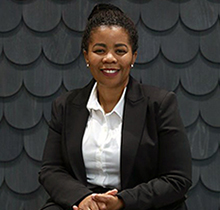
Prof Puleng LenkaBula
In her welcome address, Prof Puleng LenkaBula, Unisa's Principal and Vice-Chancellor (VC), said: "Despite the long history of distance education, there has been insufficient development in it both as a field and as a delivery method globally. Also, the provision of higher education is relatively inadequate globally." The VC encouraged higher education institutions to embrace ODeL as a solution to higher education access for many people.
The VC reiterated that research has been central in providing evidence on the importance of integrated and efficient systems in making distance education possible. She added: "It provides an extensive body of theorisations on student success and retention in distance education contexts, on the use of technology, and on the moral obligation of distance education to make education accessible for the most disadvantaged."
She remarked: "We need to make tough decisions that may produce pain before gain. This conference brings together great minds from around the world to engage and explore innovative ways to make ODeL great."
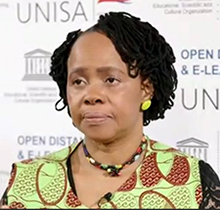
Prof Thenjiwe Meyiwa
Providing context for the conference, Prof Thenjiwe Meyiwa, Unisa's Vice-Principal of Research, Postgraduate Studies, Innovation and Commercialisation, spoke briefly on the pre-conference workshops held a day before across Unisa colleges. They covered a variety of themes and paradigms that are critical to ODeL.
Meyiwa said: "This conference offers the expertise and intent to encourage robust debate on research in ODeL. I am confident that it is well-crafted as a stage where we share research findings, grow our young and emerging scholars, create opportunities for networking and future collaborations, and strengthen existing relations." She added: "Our commitment is to contribute solutions to better access and success of our students, researchers and staff at large."
Contextualising ODeL
Explaining what ODeL entails, Kanwar remarked: "It describes policies and practices that permit entry to learning with as few barriers as possible. It differs from the emergency remote learning we witnessed during the Covid-19 pandemic." She continued: "Distance education requires a great deal of systematic planning where an institution designs and develops learning materials that are critical in providing ongoing learner support."
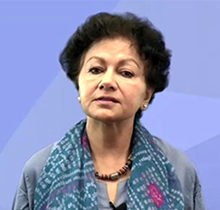
Prof Asha Singh Kanwar
Kanwar reflected on the evolution of distance education and the status of research in ODL. She stated that research trends during the Covid-19 pandemic focused more on the post-secondary sector than the secondary sector, with an increased interest in medical and health sciences.
Kanwar noted: "The key research trends since 2014 have mainly focused on issues related to open education, the design, support and quality assurance of online distance education, as well as on the implementation and use of educational technology, media and digital tools."
Research for sustainable development
Acknowledging that each context is different, Kanwar highlighted that online learning proves to be more cost-effective than face-to-face learning and can improve student performance. However, while there is continuous research on the efficiency and effectiveness of ODeL, she says more still needs to be done to enhance open educational resources.
Kanwar highlighted research opportunities in using technologies to take ODeL to the next level. These include artificial intelligence, which can generate data that can enable the customisation and improvement of student learning, and robotics, which make it possible to provide teaching assistance such as personalised support to many learners.
She raised a concern that ODeL institutions are generally not seen as major players in research. "In this regard, the three barriers are: ODeL institutions have a social mission, so they focus more on equity than research, inadequate capacity and opportunities for research training, and inadequate dissemination channels."
Kanwar emphasised that research and innovation are driven primarily by, among others, the organisation's corporate culture and adequate resources. She encouraged promoting an institutional culture of research that includes valuing and rewarding research and using research to inform policy and practice.
She asserts: "As a way forward to strengthen research, government policies and financial support, as well as technology infrastructure and collaborations are critical." Kanwar concluded by encouraging ODeL institutions to align more closely with the needs of the societies and promote research that leads to sustainable development.
* By Nancy Legodi, Acting Journalist, Department of Institutional Advancement
Publish date: 2022-08-03 00:00:00.0


 Unisa and ATUPA recognise researchers for ingenuity and innovation
Unisa and ATUPA recognise researchers for ingenuity and innovation
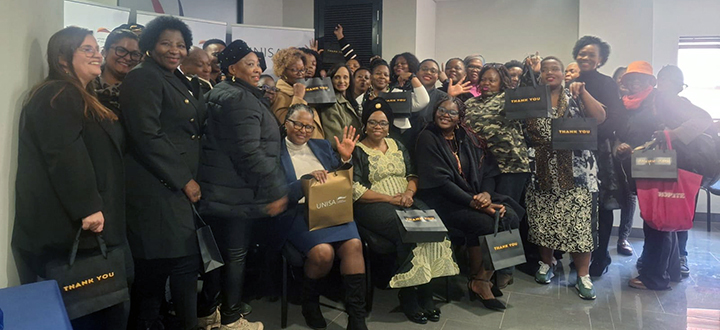 Recognising the unceasing resilience of women
Recognising the unceasing resilience of women
 Unisa and SHECASA promote institutional health and safety
Unisa and SHECASA promote institutional health and safety
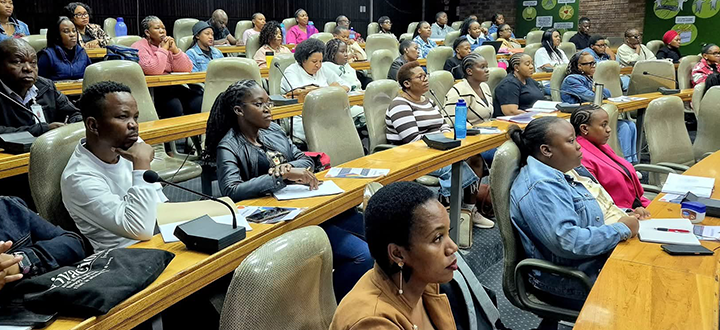 Effectual partnership to advance public health knowledge
Effectual partnership to advance public health knowledge
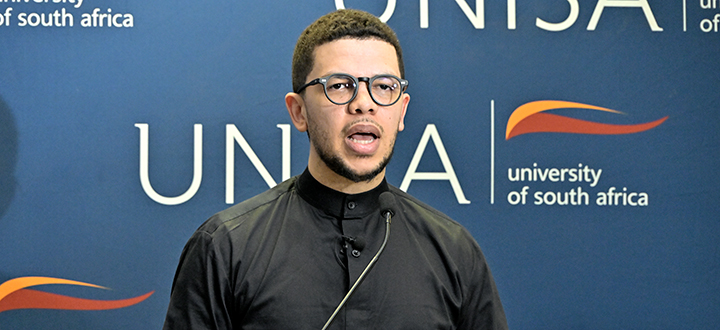 OR Tambo remembered as a radical democracy builder
OR Tambo remembered as a radical democracy builder